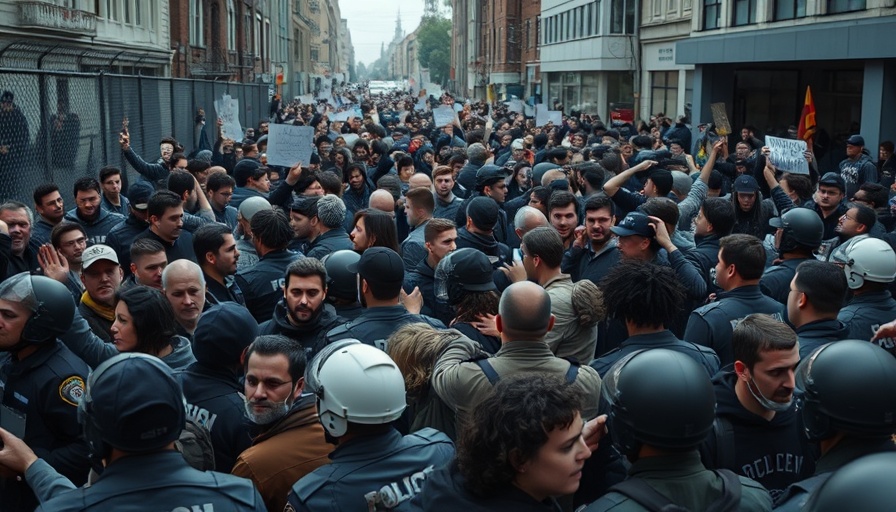
Mayor Ras Baraka's Unexpected Arrest: A Community Leader in Action
Newark, New Jersey’s Mayor, Ras Baraka, recently made headlines following his arrest at an ICE detention center. This incident sheds light not only on his unwavering commitment to advocacy but also raises critical questions about the state of immigration policies in the U.S. Baraka has been a prominent figure in combating injustices faced by immigrant communities, prompting much public interest in his motives and methods.
The Context of the Arrest: What Happened?
As part of his efforts to advocate for immigrants, Mayor Baraka entered Delaney Hall, a facility run by the U.S. Immigration and Customs Enforcement (ICE), intending to call for more humane treatment of detainees. This action came with warnings from the U.S. Attorney’s office and calls to disperse from law enforcement, yet Baraka chose to push forward, emphasizing his message over potential consequences. His arrest serves as a dramatic illustration of the tensions surrounding immigration enforcement and community advocacy.
Community Response: Support and Solidarity
Baraka's actions have ignited varied reactions among Newark's residents. Many stand in solidarity with their mayor, viewing him as a champion for the voiceless. They appreciate his hands-on approach and willingness to confront authority. This community support illustrates a growing sentiment in urban America, where local leaders are increasingly called upon to advocate for those facing systemic challenges.
Parallel Examples of Advocacy in Action
Similar cases in cities across the U.S. highlight the evolving role of local officials in addressing immigration issues. For example, many mayors in sanctuary cities have actively defied federal immigration enforcement, citing moral and ethical obligations to protect their constituents. This movement emphasizes how leaders like Baraka are at the forefront of a larger struggle for justice, creating awareness about the realities faced by many immigrant families.
The Broader Implications of Baraka's Arrest
Baraka’s arrest raises critical implications for policy reform. As immigration laws continue to be contentious in the political landscape, stories like his may pave the way for deeper discussions about the responsibilities of local governments versus federal entities. This moment highlights the need for compassion and humanity in policymaking, urging communities and leaders to demand systemic changes that reflect their values.
Future Predictions: What’s Next for Newark?
As Newark moves forward, the impact of Baraka’s arrest will likely continue to shape discussions on immigration policy and reform. His bold stance could inspire other leaders to follow suit, leading to a wave of grassroots movements advocating for immigrant rights across the country. The road ahead may not be easy, but the resilience shown by officials and residents alike is bound to spark significant change.
How You Can Get Involved
Community engagement is vital in these discussions. Residents can attend local meetings, connect with advocacy groups, and be vocal about issues impacting their neighborhoods. Understanding the fabric of immigration policy, learning about local resources, and supporting those directly affected are invaluable steps each community member can take.
 Add Row
Add Row  Add
Add 




Write A Comment